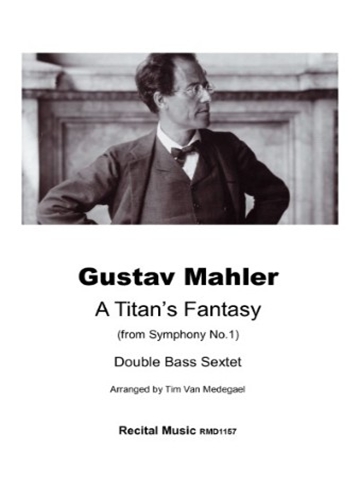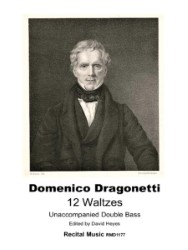A Titan’s Fantasy
from Symphony No.1

Composer: Mahler, Gustav
Arranged for: 6 Double Basses
Arranger: Tim Van Medegael
Publisher Recital Music
A Titan’s Fantasy by Gustav Mahler, primarily based on the third movement of Symphony No.1, is a masterly arrangement for the intermediate double bass sextet…
Page ? of ?
Digital Download – PDF
Shipping costs: No shipping
R.R.P £10.00
Our Price: £8.50




